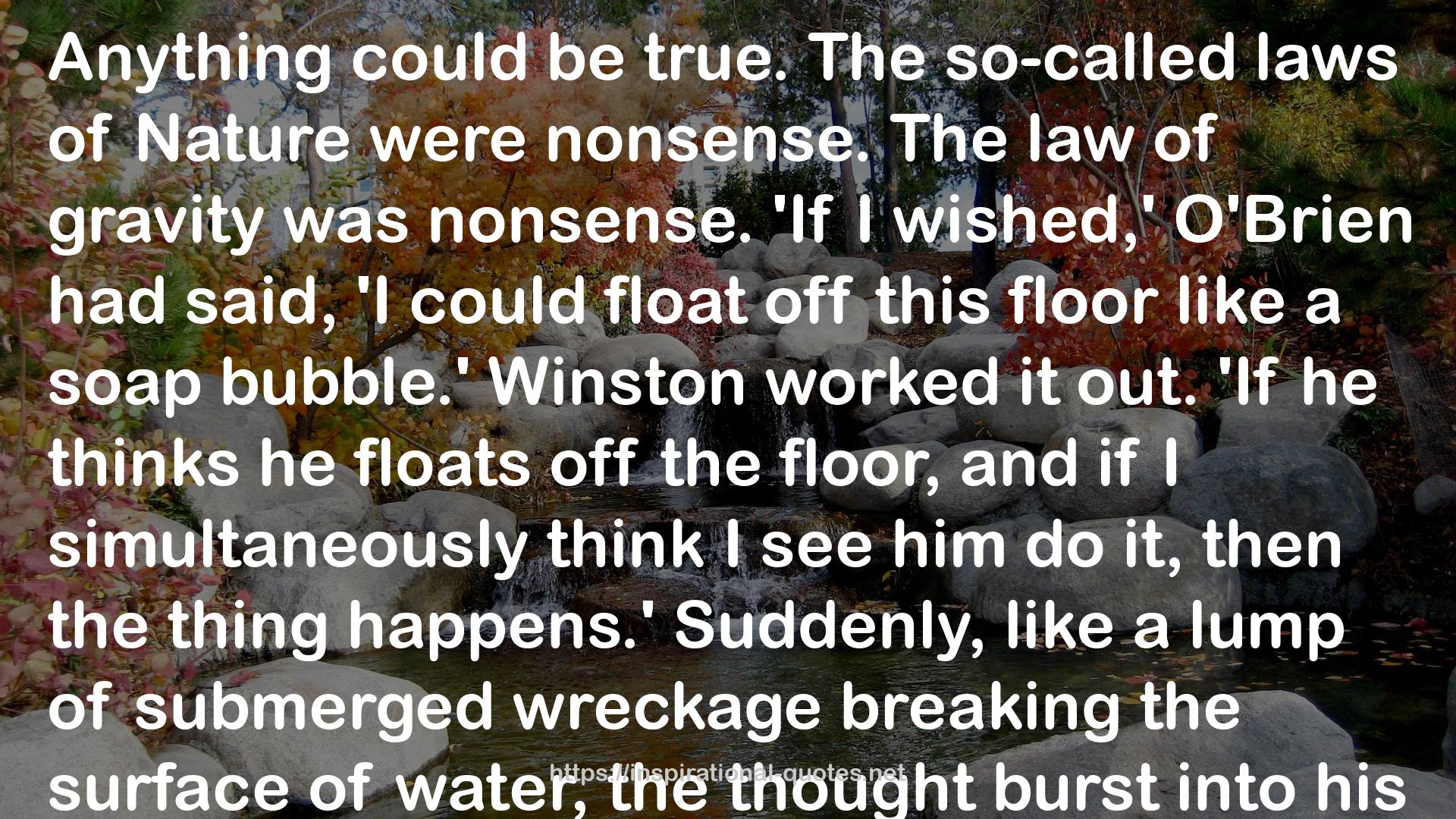" Anything could be true. The so-called laws of Nature were nonsense. The law of gravity was nonsense. 'If I wished,' O'Brien had said, 'I could float off this floor like a soap bubble.' Winston worked it out. 'If he thinks he floats off the floor, and if I simultaneously think I see him do it, then the thing happens.' Suddenly, like a lump of submerged wreckage breaking the surface of water, the thought burst into his mind: 'It doesn't really happen. We imagine it. It is hallucination.' He pushed the thought under instantly. The fallacy was obvious. It presupposed that somewhere or other, outside oneself, there was a 'real' world where 'real' things happened. But how could there be such a world? What knowledge have we of anything, save through our own minds? All happenings are in the mind. Whatever happens in all minds, truly happens.
He had no difficulty in disposing of the fallacy, and he was in no danger of succumbing to it. He realized, nevertheless, that it ought never to have occurred to him. The mind should develop a blind spot whenever a dangerous thought presented itself. The process should be automatic, instinctive. Crimestop, they called it in Newspeak.
He set to work to exercise himself in crimestop. He presented himself with propositions -- 'the Party says the earth is flat', 'the party says that ice is heavier than water' -- and trained himself in not seeing or not understanding the arguments that contradicted them. It was not easy. It needed great powers of reasoning and improvisation. The arithmetical problems raised, for instance, by such a statement as 'two and two make five' were beyond his intellectual grasp. It needed also a sort of athleticism of mind, an ability at one moment to make the most delicate use of logic and at the next to be unconscious of the crudest logical errors. Stupidity was as necessary as intelligence, and as difficult to attain. "
― George Orwell , 1984
Image for Quotes

